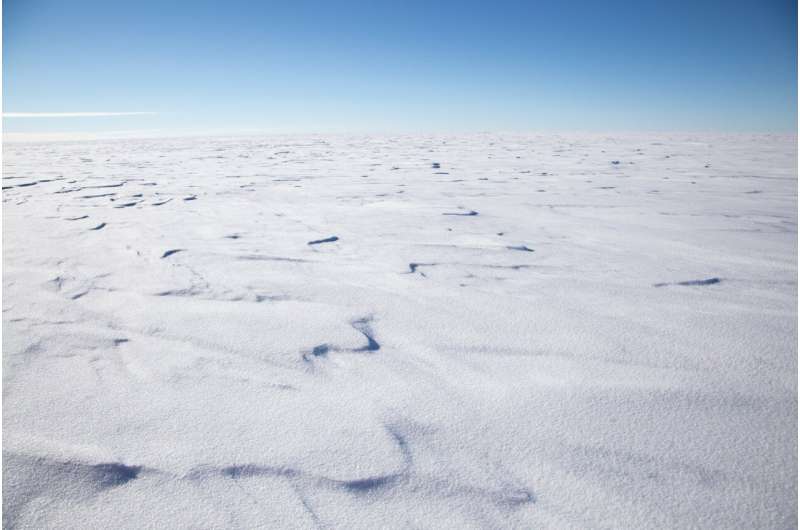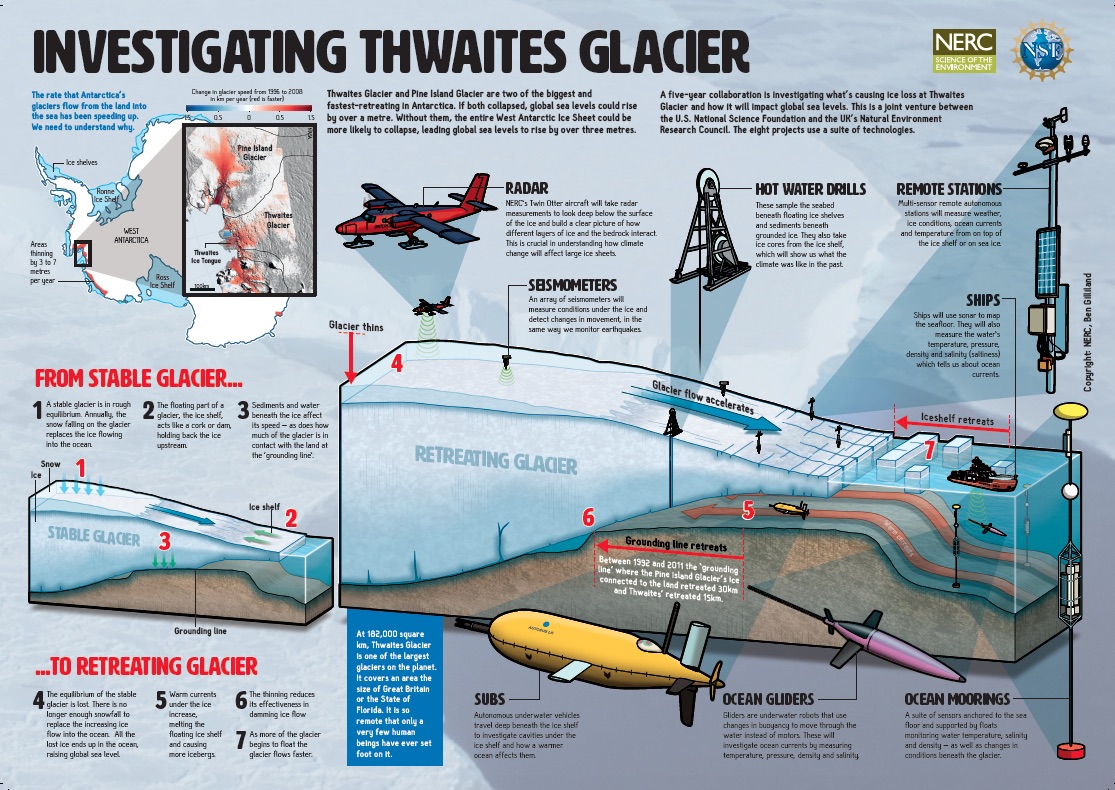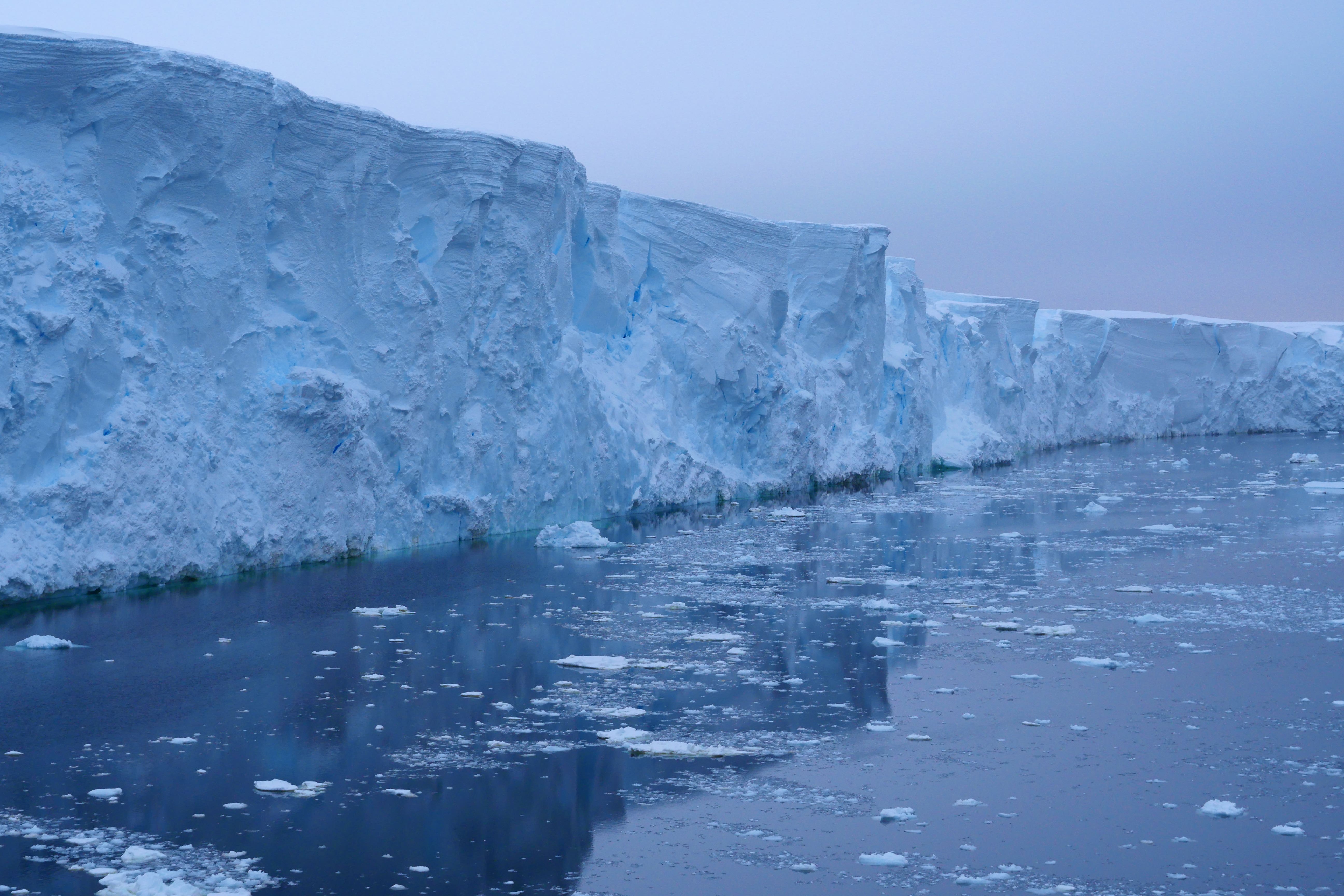SEPTEMBER 23, 2024
Editors' notes
'Doomsday' glacier set to melt faster and swell seas as world heats up, say scientists

Tidal action on the underside of the Thwaites Glacier in the Antarctic will "inexorably" accelerate melting this century, according to new research by British and American scientists. The researchers warn the faster melting could destabilize the entire West Antarctic Ice sheet, leading to its eventual collapse.
The massive glacier—which is roughly the size of Florida—is of particular interest to scientists because of the rapid speed at which it is changing and the impact its loss would have on sea levels (the reason for its "Doomsday" moniker). It also acts as an anchor holding back the West Antarctic ice sheet.
- More than 2 kilometers (1.2 miles) thick in places, Thwaites has been likened to a cork in a bottle.
- Were it to collapse, sea levels would rise by 65 centimeters (26 inches).
- That's already a significant amount, given oceans are currently rising 4.6 millimeters a year.
- But if it led to the eventual loss of the entire ice sheet, sea levels would rise 3.3 meters.
While some computer models suggest reductions in greenhouse gas emissions under the 2015 Paris Agreement may mitigate the glacier's retreat, the outlook for the glacier remains "grim," according to a report by the International Thwaites Glacier Collaboration, or ITGC, a project that includes researchers from the British Antarctic Survey, the U.S. National Science Foundation and the UK's Natural Environment Research Council.
- Other dynamics that aren't currently incorporated into large-scale models could speed up its demise, the new research shows.
- However, in areas where the parts of the glacier lift off the seabed and the ice begins to float, tidal action is pumping warmer sea water, at high pressure, as far as 10 kilometers (6 miles) under the ice.
- Heavy snowfalls, for example, regularly occur in the Antarctic and help replenish ice loss, Michelle Maclennan, a climate scientist with the University of Colorado at Boulder, explained during a news briefing. "The problem though is that we have this imbalance: There is more ice loss occurring than snowfall can compensate for," she said.
- At a certain point, though, that's expected to switch over to rain and surface melting on the ice, creating a situation where the glacier is melting from above and below. How fast that happens depends in part on nations' progress to slow climate change.
.jfif)






No comments:
Post a Comment